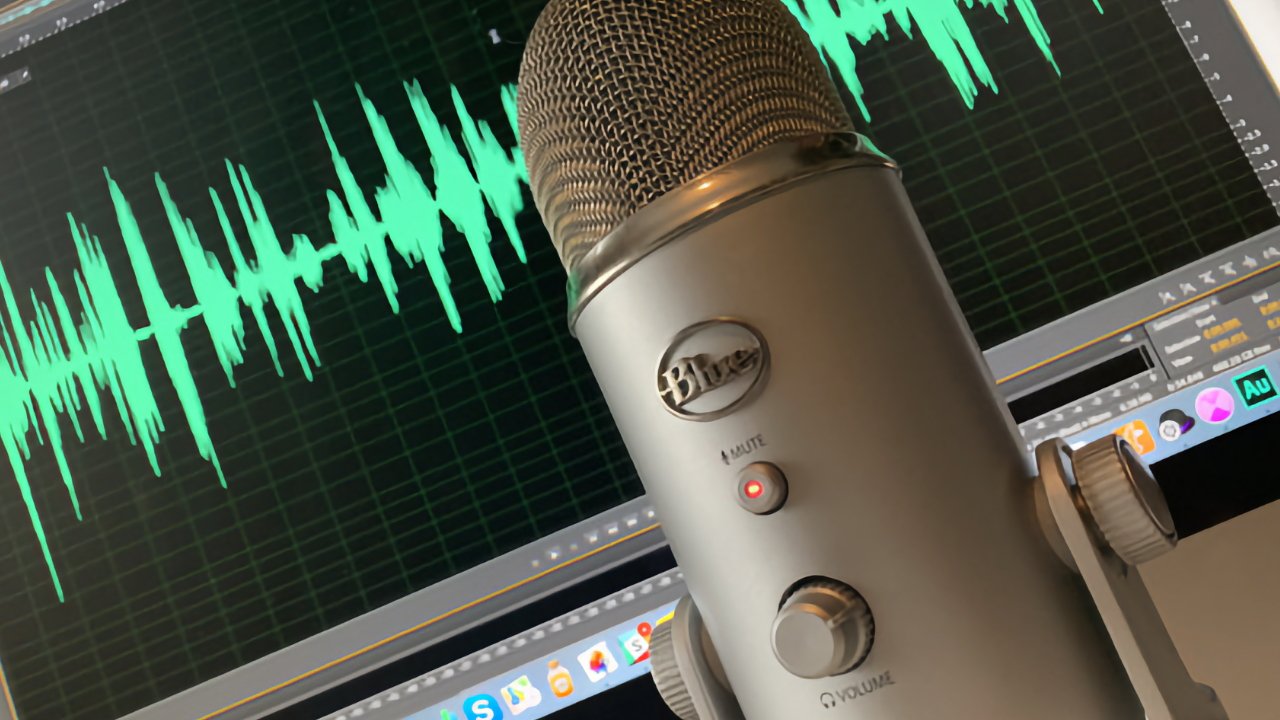Customers of Spotify's audiobook narration firm say that they were not adequately informed of a contract clause that they agreed to, that ultimately allowed Apple to use their voices in its AI training.
Apple quietly released a range of audio Apple Books in early January 2023, which were narrated by voices entirely generated by Artificial Intelligence. Publishers and professional voice actors objected that this was removing a major source of income, but Apple claimed it was still committed to artists.
Specifically, Apple said that the new AI audiobooks were only done for titles where it was not economic to hire an actor. So that would be low-circulation ones such as textbooks, small presses, and self-published titles.
Now according to Wired, voiceover artists and authors working with a company called Findaway have complained about Apple using them to train their own AI replacements.
Findaway is effectively a self-publishing audio company that is owned by Spotify, where authors pay to have audiobooks produced. As yet, it appears that no actors working for traditionally published titles — where the audiobook is produced by the publisher without a charge to the author — have complained.
In the case of Spotify's Findaway, however, authors and also voice actors have complained about the clause which gave Apple the rights to "use audiobook files for machine learning training and models."
"It feels like a violation to have our voices being used to train something for which the purpose is to take our place," Andy Garcia-Ruse, a narrator, told the publication.
It's not clear when this clause was added, as the authors and actors say it was not explicitly pointed out to them when they signed updated agreements. Findaway was bought by Spotify in June 2022.
Actors' union steps in
Such are the complaints about the contract clause that the actors' union, SAG-AFTRA has reportedly become involved. Jane Love, the union's national director for audiobooks, said that SAG-AFTRA is "still working with Findaway toward a solution that recognizes the union's concerns."
Those concerns include the "safe storage of the recordings and data, usage limitations, and appropriate compensation."
While Findaway, Spotify, and Apple have all yet to comment publicly, SAG-AFTRA has confirmed to its members that the practice has been stopped. Findaway and Apple have reportedly agreed to immediately cease all "use of files for machine learning purposes," for union members.
It applies retrospectively, too, with SAG-AFTRA saying this halt covers "all files dating back to the beginning of this practice." It is not clear, however, how Apple could implement that without removing at least many AI-narrated audiobooks from sale.
Regardless of whether an author or actor is part of the union, their contract with Findaway reportedly includes the option to revoke the option allowing Apple's use of their work. Author Isobel Starling says she immediately requested the exercise of that right, and Findaway responded saying that it had submitted her request to Apple.
However, another narrator, Gary Furlong, said that Findaway had yet to respond to his own request.
 William Gallagher
William Gallagher

-m.jpg)






 Marko Zivkovic
Marko Zivkovic
 Mike Wuerthele
Mike Wuerthele
 Christine McKee
Christine McKee
 Amber Neely
Amber Neely
 Wesley Hilliard
Wesley Hilliard












10 Comments
Not sure if i understand it correctly - they signed a contract and now they complain about what they signed? That no one told them specifically what each paragraph meant? Well, if i don’t understand something i am reading in a contract, i either ask the one who handed me the contract, or i can of course ask some lawyer to consult. And of course pay for the advice… that’s what my logic would said to me…
I'm a NYT bestselling author and I'm also a professional narrator. I've voiced two of my own audiobooks and both are available via Findaway.
The SAG and voice freelancers are obviously upset because increasing reliance on AI will effectively end their careers. As Riverko says, they ought to have read the contract before they signed.
The same thing has happened over the past couple of decades in the broadcast industry. Broadcasters like me grew up working for one radio station; today, my best friend runs nine stations at once.
Genuine broadcast and narrating talent will be a thing of the past in another generation. Whether that's a good thing depends, I suppose, on the number of people who benefit from the demise of quality voice work.